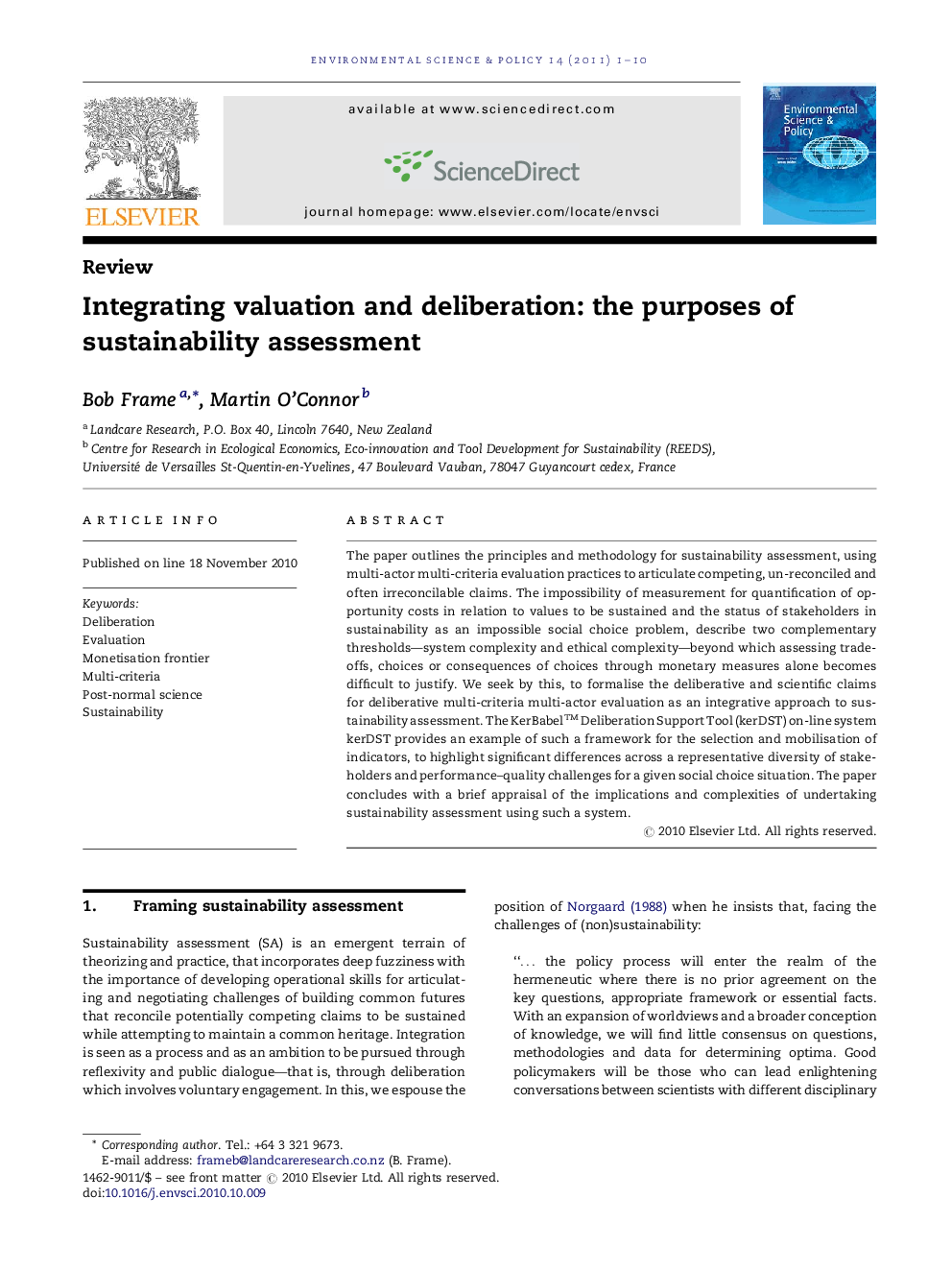| کد مقاله | کد نشریه | سال انتشار | مقاله انگلیسی | نسخه تمام متن |
|---|---|---|---|---|
| 1053954 | 946737 | 2011 | 10 صفحه PDF | دانلود رایگان |

The paper outlines the principles and methodology for sustainability assessment, using multi-actor multi-criteria evaluation practices to articulate competing, un-reconciled and often irreconcilable claims. The impossibility of measurement for quantification of opportunity costs in relation to values to be sustained and the status of stakeholders in sustainability as an impossible social choice problem, describe two complementary thresholds—system complexity and ethical complexity—beyond which assessing trade-offs, choices or consequences of choices through monetary measures alone becomes difficult to justify. We seek by this, to formalise the deliberative and scientific claims for deliberative multi-criteria multi-actor evaluation as an integrative approach to sustainability assessment. The KerBabel™ Deliberation Support Tool (kerDST) on-line system kerDST provides an example of such a framework for the selection and mobilisation of indicators, to highlight significant differences across a representative diversity of stakeholders and performance–quality challenges for a given social choice situation. The paper concludes with a brief appraisal of the implications and complexities of undertaking sustainability assessment using such a system.
Journal: Environmental Science & Policy - Volume 14, Issue 1, January 2011, Pages 1–10